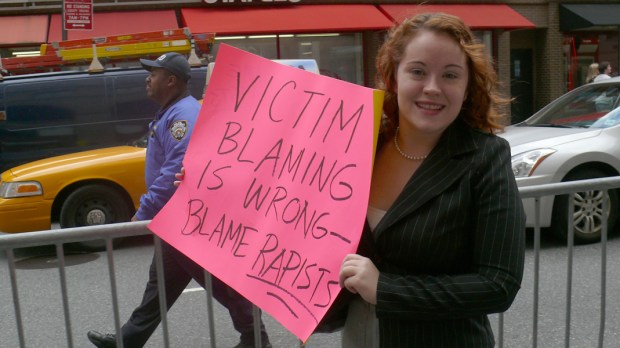Sexual assault allegations are pouring in and, surprisingly, they seem to be eliciting genuine anger – not just the wrath of political expediency, as seemed to be the case when allegations were made against Bill Clinton and Clarence Thomas in the 90s. Back then, revelations of abuse were often ideologically weaponized and brandished as predictably as boxes are ticked for one’s favored political party.
This time, however, there is a perceptible shift. Many people, regardless of political allegiances, no longer have the stomach to ignore sexual predatory behavior, no matter the source. That is all to the good.
Unfortunately, however, there are still some people – they are legion on social media – who are willing to play games with these accusations. Some are happy to be selectively outraged – particularly if allegations hurt their personal priorities, friends, or political allies.
Such hypocrisy is more obvious now than it used to be, especially because the accused come from a wide range of backgrounds, political beliefs, and worldviews. Those who are “appalled” by some aggressors but smear the accusers of a business partner or ideological ally immediately show themselves for who they are and what they really care about.
Let’s be clear: fake wrath in response to assault allegations has nothing to do with justice, nothing to do with concern for victims, and much more to do with arrogance and self-interest. Fake wrath uses victims a second time by exploiting their pain in order to further one’s own interests. Prioritizing favored political parties or worldviews over victims’ pain has absolutely nothing to do with preventing powerful people from preying on the vulnerable.
Those who exhibit fake wrath in this way must know to some extent that they are being hypocrites, but hypocrisy is not the worst of their behavior. Are they even cognizant of the fact that when they use sexual assaults as political fodder —for an ally or against an opponent — they are exploiting the already-exploited in an effort to win a political point?
Probably, they are not. People have become so accustomed to constant infighting that degrading others is a woefully commonplace tactic.
The people who pick up victims’ revelations like rocks and eagerly fling them at enemies probably do not reflect much on their behavior. They see themselves as “warriors” and consider the war important enough to justify just about any means and methods. Stripping people of their dignity, even sexual assault victims, and using their pain is justified in their minds, as long as it is done for a “righteous” purpose. They do not pause to consider whether a response is appropriate, just, or respectful to the victims.
Regardless of whether these people realize what they are doing, however, it is clear that their behavior — in many cases – has two terrible effects:
It treats victims like things to be used. People who have already been exploited sexually are used once more – their pain commodified for political expediency.
It pretends that this kind of abuse is only a problem among “those people” – the ones with differing worldviews, opinions, or beliefs – and sends the message that certain groups are immune.
This is simply not true.
The abuse crisis in the Church is just one example of how harmful such a pretense can be; it should remind everyone that predators exist everywhere, but can only hide, and continue to victimize, when they are ignored, enabled, or the people around them are in denial.
In truth, the best hiding place is precisely where one would least expect to find a predator: in a high office of power and respectability; in a publicity-driven business; in a confessional.
Attempts to claim that sexual predation is a problem “there, but not here, among that group, but not among ours,” actually puts people in danger. People who do not understand this important lesson and fail to categorically condemn this horrendous behavior in all circumstances, and not just when it is convenient, are actually enabling abusers.
“Love others as yourself” includes not putting future potential victims in danger by using the pain of those who have already been terribly degraded to score points.

